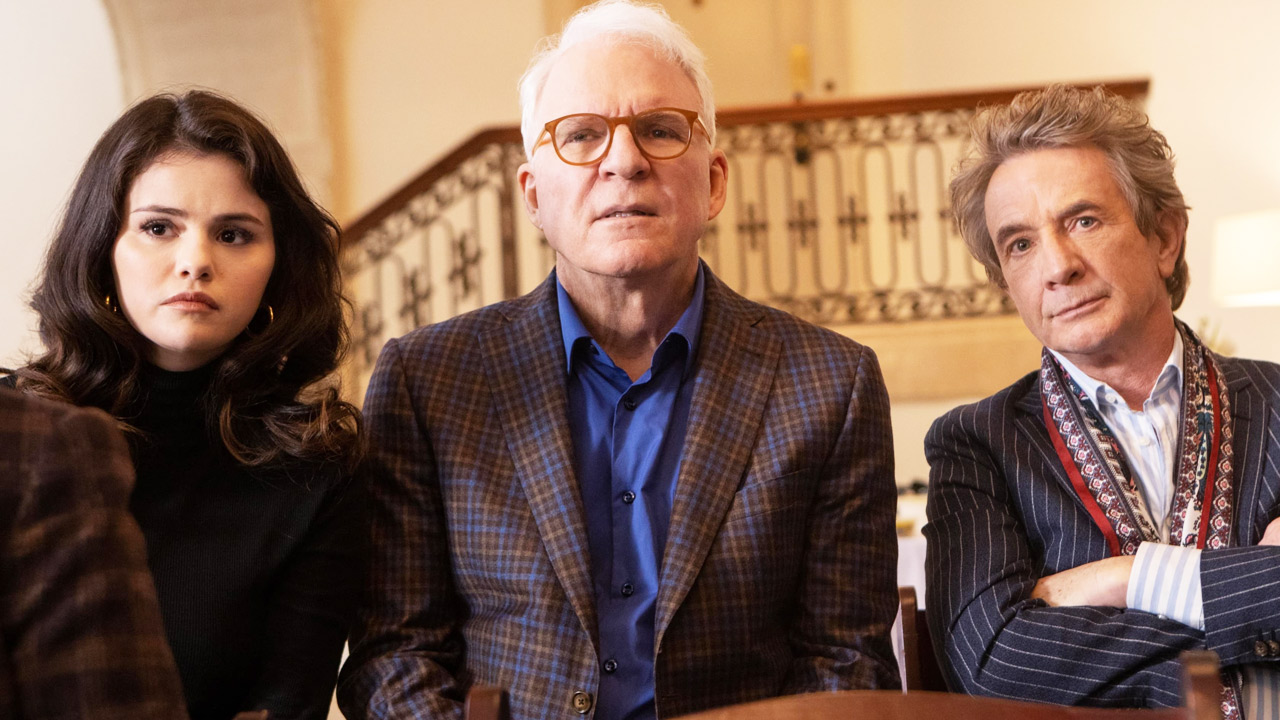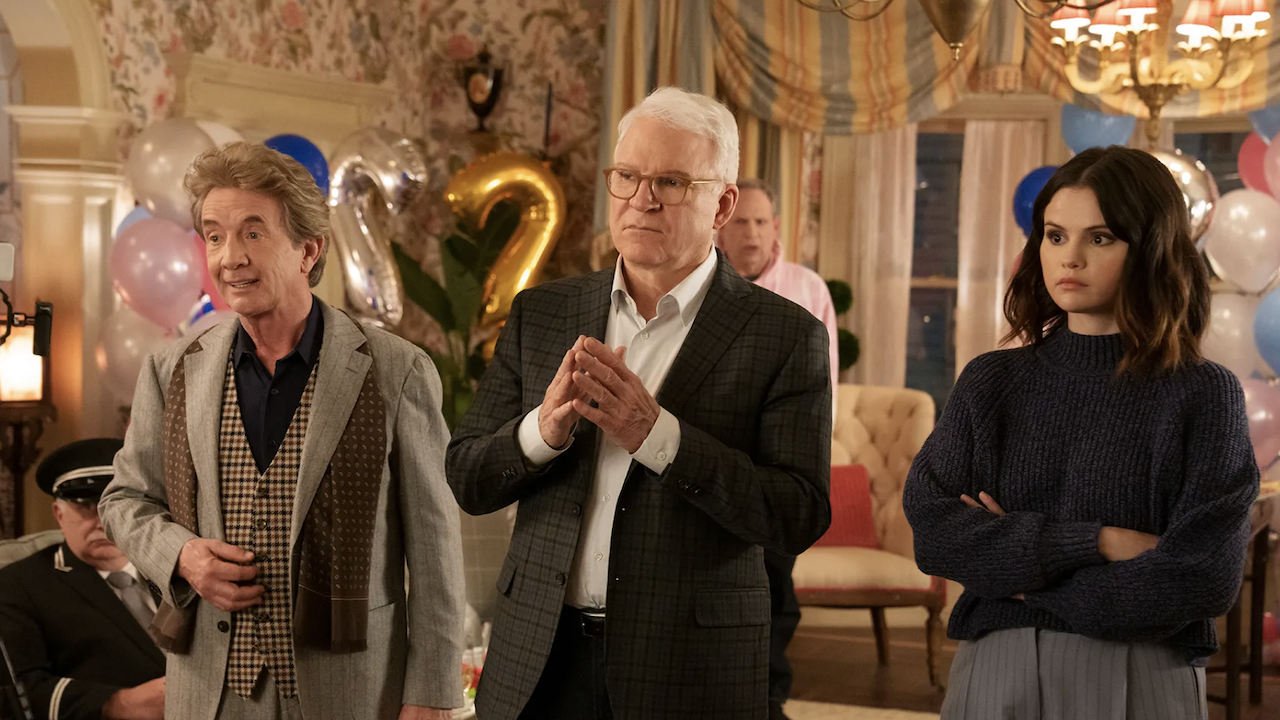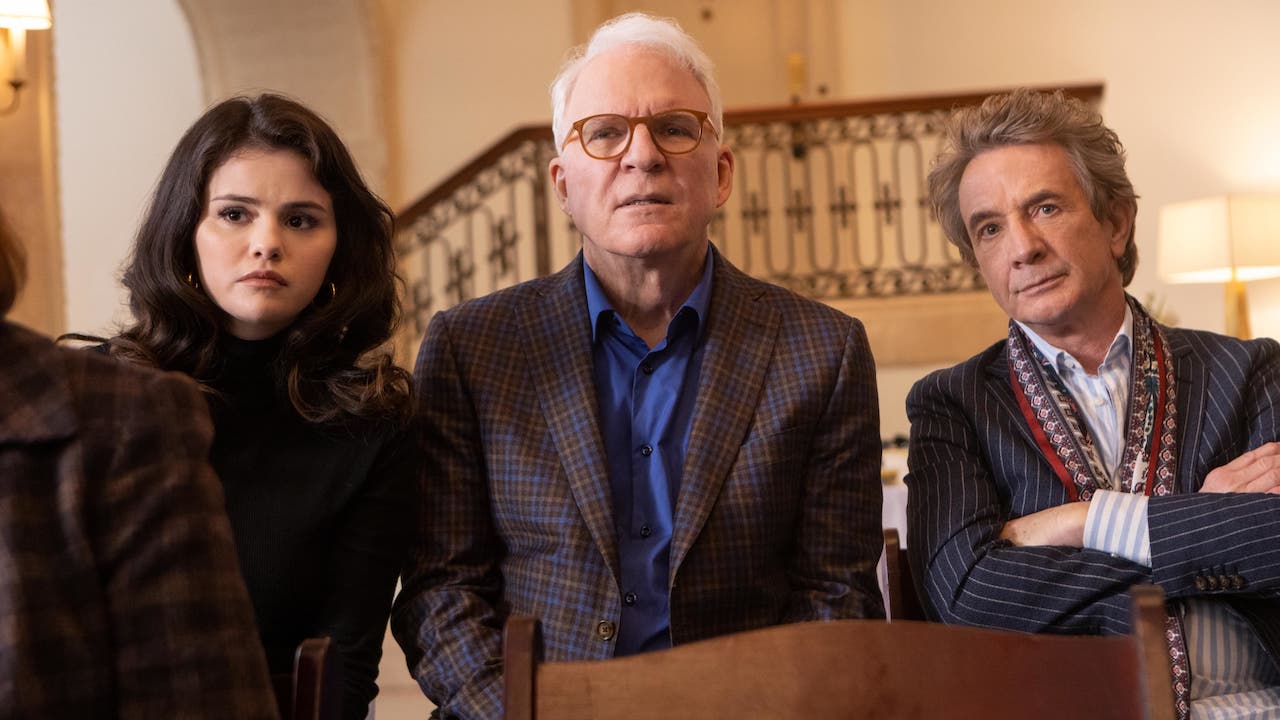Only Murders In The Building remains determinedly lovely in its high-stakes second season

Despite its morbid plot, Disney+ comedy Only Murders In The Building is still focused on life and laughter. Clarisse Loughrey applauds the consistent “easy chemistry” of our three leads.
“I wasn’t that into murder before, but you made it sounds so cosy,” Oliver Putnam’s (Martin Short) new neighbour gushes, a few minutes into Only Murders in the Building’s second season. They’re referencing the podcast he made with a couple of the apartment complex’s other residents—faded thespian Charles-Haden Savage (Steve Martin) and perma-anxious millennial Mabel Mora (Selena Gomez).
Together, in real-time, they solved the mystery behind the death of Mabel’s one-time pal Tim Kono (Julian Cihi). And, as a result, their amateur endeavour became quite the cross-cultural hit.
But death made snuggly also makes for a pretty convenient elevator pitch for Only Murders, the rare Disney+ series that doesn’t function purely as a brand extension for one of their movie franchises. Morbidity here is a fleeting part of the equation. It matters only to the extent that, when faced with the absence of life, we tend to take better stock of just how easily joy can enter our lives if we’re open to it.
And Only Murders is determinedly lovely, even if the stakes in this second season seem initially raised. We open where last year’s finale ended, with the arrest of Oliver, Charles, and Mabel for the murder of Bunny (Jayne Houdysell)—the board president of the Arconia, where they all live, and whose body was discovered in Mabel’s apartment with a knitting needle lodged in her sternum. The trio are sent home with the label of “persons of interest” and a warning that any attempt to log their suspicions about the murder in podcast form will land them straight in jail. But that doesn’t prove so easy when Tina Fey’s Sarah Koenig-esque Cinda Canning hops behind a mike in order to write their narrative for them.

I’m reluctant to name the actor playing Arconia’s newbie—the one who’s so taken by Oliver’s podcast that they try to buy the rights to adapt it into a limited series. Only Murders continues the previous season’s trend of introducing an array of eccentric side characters played by very recognisable faces (in the past, we’ve had Nathan Lane and Jane Lynch).
The steady thrill of never quite knowing who’s about to walk through the door is a significant part of the show’s glossy, Broadway charm. Sure, Martin and Short may have called in a few favours, but everyone’s happy to be there. Effervescent, even. The guest stars this time around, however, don’t all fit as neatly as they did before—some feel a little atonal, with the exception of one individual who’s so exhilaratingly perfect that I wish the episode had given me some kind of warning to buckle in before they turned up.
Maybe those kinds of growing pains are to be expected from a show that first presented itself like a box of luxury chocolates—delicate and perfectly packaged, a thing to be savoured in its minute perfection. Certainly, the path to Oliver, Charles, and Mabel launching another podcast series was always going to feel a little contrived. But Only Murders is at least thoroughly aware of the conventions it’s obligated to submit to, and makes light of them wherever it can.

“You can tell it’s our second season”, Charles apologetically offers at one point. It isn’t really necessary, in the end. I doubt many people were coming back to Only Murders, week after week, because they were desperate to find out who killed Tim Kono. The real draw here is the humanity on display—the easy chemistry between longtime comedy partners Martin and Short, which seems so unaffected by the passing decades. Or the way Gomez, her deadpan carrying an entire generation’s disaffection on her shoulders, makes for such a comfortable straight man to their patter. A second season also means more time spent with some of the building’s other residents, including cat-fanatic Howard (Michael Cyril Creighton).
There’s an unconventional kind of trauma bond that forms out of sharing dark and dire stories about the world we live in. I don’t believe that it’s a coincidence that, so often, when true-crime fans talk about their favourite podcasts, they’re keen to tell you how genial and comforting and empathetic the hosts seem. And while the genre is rightfully coming under scrutiny for the ways it exploits victims and furthers stereotypes, it’s nice for Only Murders to come from a nuanced and non-judgemental place of understanding of why people are drawn to this world in the first place. Is it really about the murder? Or is it about the people?


















